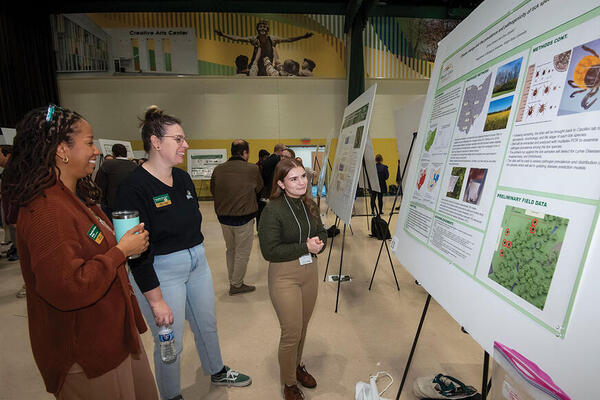The interdisciplinary Biomedical Sciences, Ph.D. Program:
- is big enough to be at the forefront of research
- is small enough for interactions with experts in day to day work
- has a cooperative climate for training and research
- has an established record of timely graduations and alumni successes
- provides competitive stipends in a vibrant region with a low cost of living
Our wide range of knowledge and expertise is focused around four Biomedical Science areas of research and training concentration:
- Integrative Biology and Toxicology
- Molecular Genetics and Cell Biology
- Neuroscience and Physiology
- Structural and Quantitative Biology
You will work with a group of faculty members recently recognized as the fourth-most productive in terms of research and professional activity among “small research universities” (less than 15 Ph.D. programs) nationally. Learn from experts in their fields—editors and reviewers for numerous journals and granting organizations and researchers developing the latest cutting-edge methodologies and instrumentation.
This fact isn’t just good for them; it’s also good for you! Our program is structured to give you one-on-one interaction with these experts. You will be trained to master sophisticated equipment, experimental methods, and current theory. You will personally contribute to grant proposals and author your own papers; you're not just a name at the bottom of a list.
You will work directly with the primary investigator, your mentor. You’ll be glad to know that this mentor is chosen, not by a panel or an advisor, but by you! If you already have a clear vision for your area of study when you enter the program, you are free to declare it from the beginning and choose your mentor immediately. But if you haven’t entirely settled on your area of focus, you can take up to a year to explore your interests before choosing your mentor. It’s up to you!
It is an integral part of our culture that faculty, staff, and other students maintain an “open door policy.” This means you have ready access to expertise, equipment, or advice, whether it’s inside or outside of your area of focus.
Program News
View all Biomedical Sciences News



